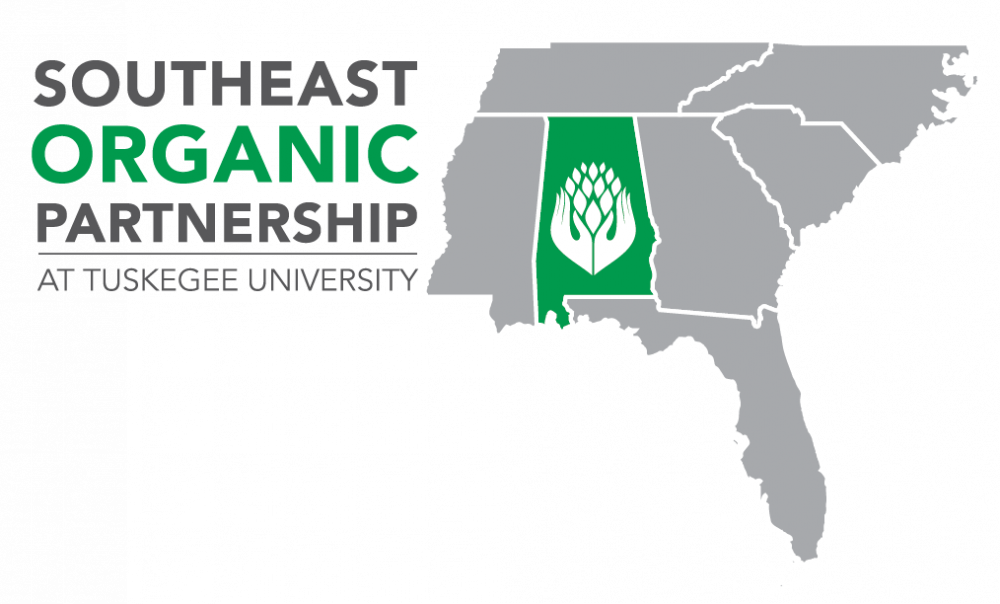Welcome
 Welcome to the website about the USDA NIFA OREI funded research project Strengthening Organic Farming Infrastructure through Consumer Education, Market Development and Integrated Extension and Research Programs in the Southeastern Region, led at Tuskegee University. Here, you will learn about the project and find information resources on organic farming in the Southeast.
Welcome to the website about the USDA NIFA OREI funded research project Strengthening Organic Farming Infrastructure through Consumer Education, Market Development and Integrated Extension and Research Programs in the Southeastern Region, led at Tuskegee University. Here, you will learn about the project and find information resources on organic farming in the Southeast.
The United States leads the world in organic agriculture with sales of over $35 billion in 2014. However, most certified organic operations (COO) are located in the Northeast, Midwest, and California with significantly fewer in the Southeast. In the Southeast, 650 farms were listed as COO in 2011 and their number continues to decrease in its many areas. The region lags behind the rest of the nation in certified organic vegetable production. This situation represents an unfilled niche, and hence, an economic opportunity for small-scale producers in the Southeast.
There are two main reasons why more farmers in the Southeast are not transitioning into organic farming systems: a) lack of market and b) prevalence of pests. Although these pests are found year round in the Southeast because of the hot summers and mild winters, the region has the greatest freshwater biotic diversity in the nation that could support growth of organic agriculture.The Southeast offers little infrastructure to support small-scale family farmers; the land grant institutions have traditionally focused on conventional farming of commodity crops which has resulted in inadequate research and extension information to address local problems. Realizing that these challenges are widespread in the region, a consortium of selected land-grant universities (Auburn University, Mississippi State University, and North Carolina University) led by Tuskegee University and with support from the Alabama Sustainable Agricultural Network and eOrganic have agreed to come together with a common strategy to improve organic agriculture in the Southeast.
The long-term goals of this partnership are to facilitate the development of a strong and vibrant organic farming industry in the Southeast. This will be achieved by improving consumers’ knowledge of organic foods, thus facilitating the growth of a market for fresh organic vegetables and providing research and extension programs to support and enhance production of organic vegetables in the region. The four-year project, funded by the United States Department of Agriculture through NIFA will accomplish the following objectives:
- Educate consumers on the benefits of organic foods; conduct research, education, and develop adequate and appropriate extension materials for farmers in the region
- Test organic pesticides against major pests of southern peas, squash, sweet potato, and tomato
- Provide site-specific recommendations to organic growers through organized advanced multi-location, multi-state on-farm trials.
- Use integrated pest management (IPM) techniques to evaluate and improve systems-based IPM programs to address pest and pest-related problems to enhance the ability of producers in the Southeast to grow and market high quality organic agricultural products.
- Develop educational tools for cooperative extension personnel, consumers, and agricultural professionals who advise producers on organic practices
Funding

This project is funded by the Organic Research and Extension Initiative grant, part of the USDA National Institute of Food and Agriculture. Grant number 2016-51300-25725

